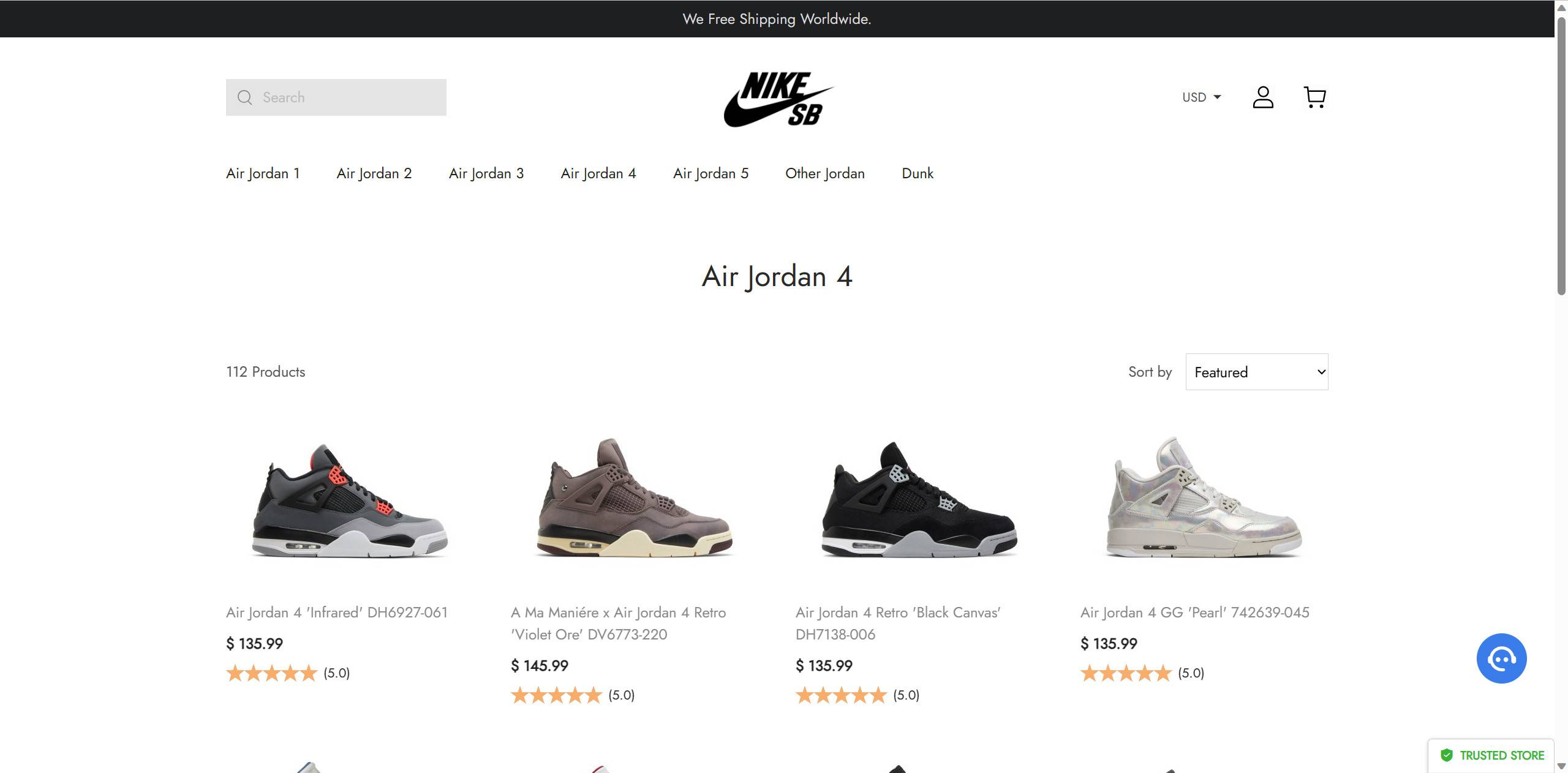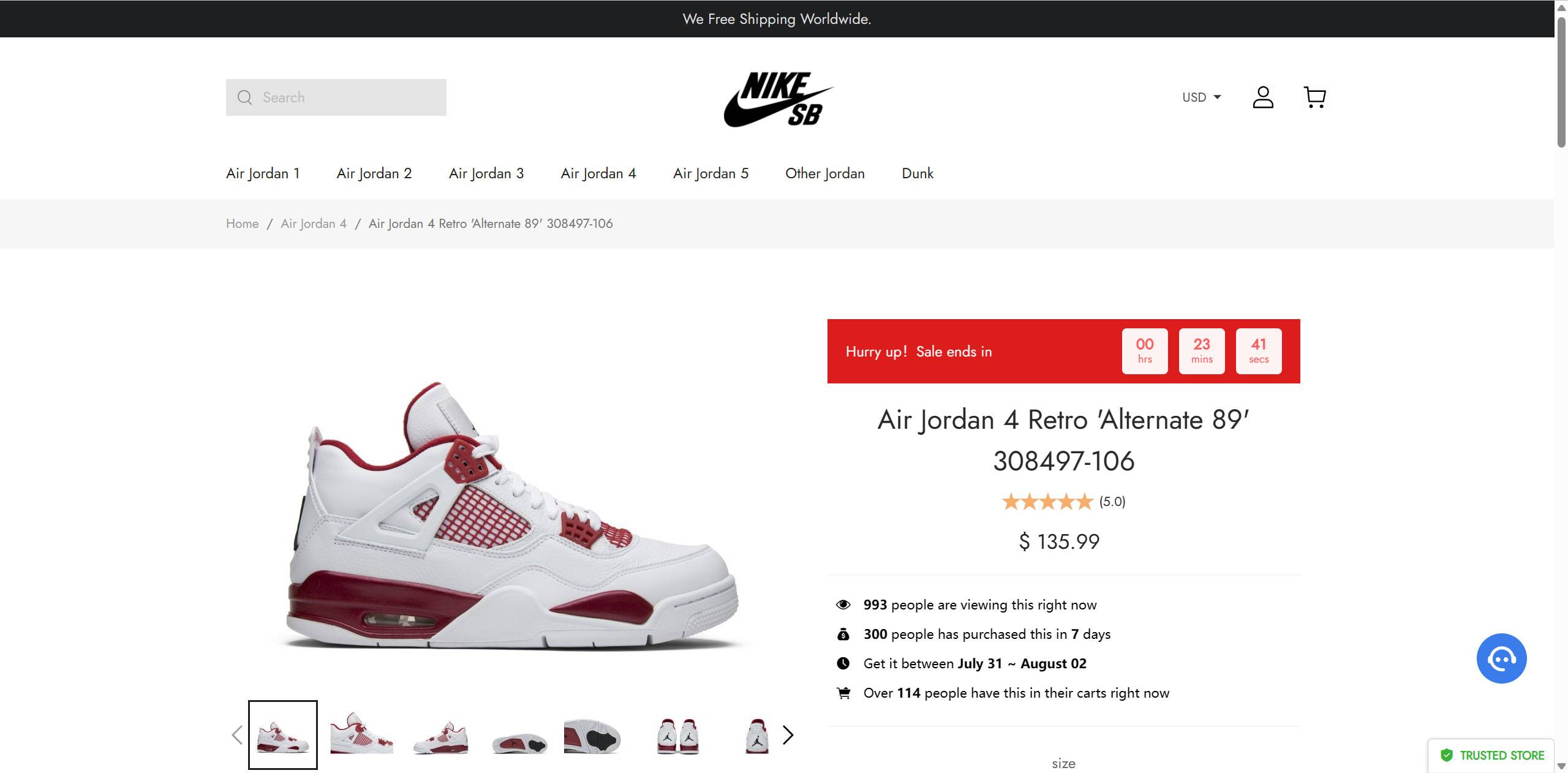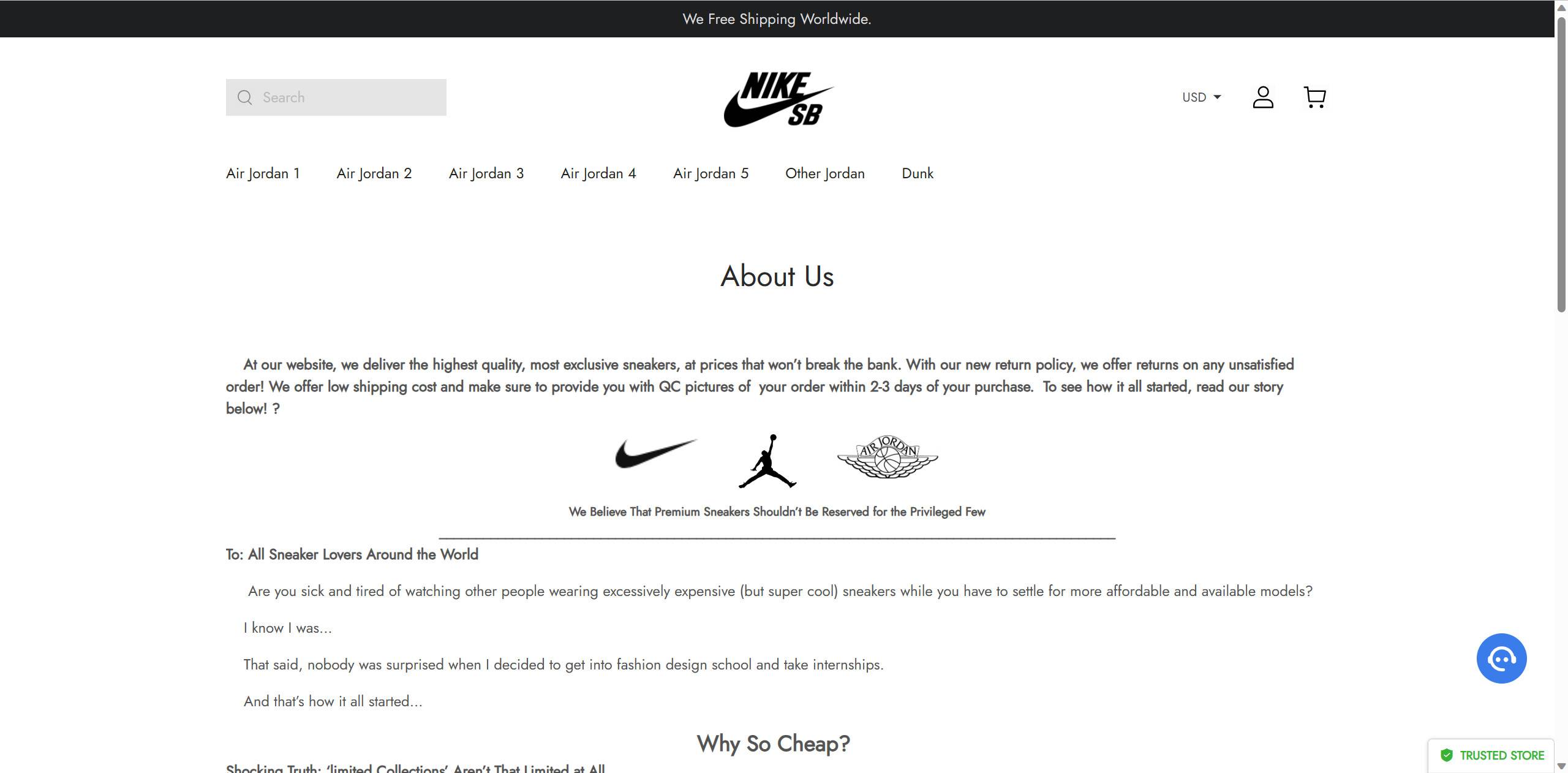Several fraudulent websites have been deceiving online shoppers by claiming to sell highly coveted Nike Air Jordan sneakers at unusually low prices around $135 per pair. These sites advertise what appear to be amazing deals on popular Air Jordan models like the AJ1, AJ3, AJ4, and AJ5. Some also showcase other Nike shoes like Dunks for suspiciously cheap prices.
However, these sites are complete scams aiming to steal money, personal information, and credit card details from victims who place orders under the false impression they are buying real, discounted Nike shoes. This article will break down how these Air Jordan scam sites operate, tips for spotting them, and most importantly how to avoid getting ripped off by their convincing fakes.
How the Air Jordan Scam Sites Work
The scam websites advertising cheap Air Jordans utilize a variety of deceitful techniques to fool potential buyers:
- They design sites to closely mimic the official Nike site with logos, branding, and photos of authentic shoes. Some even use Nike’s name outright.
- The sites advertise prices around $135 per pair, which is low compared to the $200+ market rate for most Air Jordan models on resale sites.
- They claim to offer full-size runs of the most coveted or sold-out shoes that are near impossible to acquire, like the “Chicago” AJ1 or “Parra” Dunks.
- They promise quick and reliable shipping to entice orders. Some use fake badges like “VeriSign Secured” to appear legitimate.
- Once payments are processed, customers receive emails with fake tracking info. But the shoes never arrive.
- Any complaints submitted result in ignored emails or blocked accounts without refunds issued.
The scam websites are able to trick unsuspecting shoppers through the enticing low prices around $135 per pair, claims of having full stock even on sold out and limited shoes, and designing the sites to appear professional and secure at first glance.
These convincing elements lead victims to believe they are getting unbelievable deals on authentic, hard-to-find Air Jordans. This convinces shoppers to eagerly place orders through the seemingly legitimate purchasing process.
However, these scam sites have absolutely no intent or capability to actually fulfill the orders as advertised. The scammers are only focused on pocketing victims’ upfront payments, stealing any personal or financial information entered, and disappearing before buyers realize they have been duped.
Once payments are processed, customers will eventually receive fake tracking numbers that never update or deliver. The scammers block any user that tries to inquire about the missing items or request refunds. This leaves victims empty handed without any shoes or recourse, having already paid prices that seemed too good to pass up.
The harsh reality behind these scam sites is they rely entirely on deceiving eager shoppers to turn a quick profit, while never providing anything close to the promised transactions for coveted Air Jordan sneakers.
Warning Signs of an Air Jordan Scam Site
While the scam sites can look convincing on the surface, they generally share red flags that expose their fraudulent nature upon closer inspection:
- Prices far below normal resale value, often around $135 per pair for coveted models.
- They claim to have full stock of sold out or extremely limited shoes.
- Names like “AirJordanShop” or “Jordan11Cheap” instead of using Nike’s official branding.
- Lack of a real company name, address, phone number, or customer support channels.
- Broken English descriptions, grammatical errors, and typos.
- No verification of security certifications from McAfee or Norton.
- Reviews are all generic and positive, likely fake themselves. No negative feedback.
- Privacy policies, terms of service, and return policies are copied from elsewhere or nonexistent.
Avoiding Air Jordan Scam Site Risks
Protect yourself from getting ripped off by only purchasing from authorized retailers like Nike.com, the Nike app, Foot Locker, Champs Sports, and other reputable shops. Never buy from random one-off sites advertising unrealistic discounts or stock.
Also be sure to:
- Price compare items across legitimate listings to identify unusually low prices.
- Inspect sites for real contact information, valid security certs, and signs of unoriginal content.
- Never provide payment info or place orders without thoroughly vetting sites first.
- Use credit cards when online shopping for fraud protections. Avoid methods like bank transfers.
- Do not trust glowing reviews on otherwise unverified sites. They are likely fabricated.
With scammers regularly creating new schemes involving fan-favorite Nike shoes, maintaining awareness and skepticism is key to avoiding these traps. No deal is worth the risk of having your money and information stolen by fake sites peddling counterfeit kicks.
What to Do If You Already Paid a Scam Site
If you unfortunately already placed an order and paid one of these fraudulent sites selling fake Air Jordans, immediately take these steps:
- Contact your credit card company or bank to report the charges as fraudulent so they can be reversed and cards can be canceled/reissued.
- File disputes and chargebacks for any payments already processed. Provide any emails or evidence of the scam.
- Check credit reports and accounts closely for signs of identity theft from stolen data. Place a fraud alert if needed.
- Report the website to the FBI’s Internet Crime Complaint Center at www.ic3.gov and the FTC at www.ftc.gov/complaint.
- Leave reviews about the scam site online to warn others away from the fraudulent website if possible.
- Be extra cautious of any future shoe deals online using lessons learned to identify red flags.
Moving quickly can help limit damages from any stolen financial information or lost money from the scam. And reporting them helps authorities track down these scam operations.
Conclusion
Websites offering deals too good to be true on coveted Nike Air Jordan models like the AJ1 and Dunks are always scams, without exception. These sites will simply take victims’ money and disappear without sending any products. Protect yourself by sticking to trusted retailers, looking for scam red flags, and trusting your intuition. If a shoe deal online seems suspicious, it absolutely is. Avoid the temptation with these fraudulent sites promising Jordan shoes at unrealistically low prices. Caution and skepticism will help you steer clear of convincing scammers aiming to capitalize on the demand for iconic shoes.
FAQ About Spotting and Avoiding Air Jordan Scam Sites
What are signs of a fake site selling Air Jordans?
Red flags include prices well below normal value, full stock of sold out shoes, lacking real company info, grammatical errors, fake security badges, fabricated reviews, and more.
Are extremely discounted Air Jordans always a scam?
Yes, genuine sites will never offer brand new, in-demand Air Jordan models for more than 50% below retail value. Prices around $135 are always a scam.
Is it illegal to buy counterfeit shoes from these sites?
Yes, purchasing counterfeit goods is illegal and can lead to fines or prosecution for trademark infringement. Avoid scam sites to steer clear of legal risks.
Can I get my money back if I paid a scam site?
If you used a credit card, immediately dispute the charges as fraudulent and issue a chargeback request. Unfortunately payments via bank transfer or gift cards may be difficult to recover.
How can I safely buy discounted Air Jordans?
Use only reputable resale sites like GOAT, StockX, Stadium Goods, and trusted local resellers. Beware of Instagram or Facebook sellers with no purchase protections.




